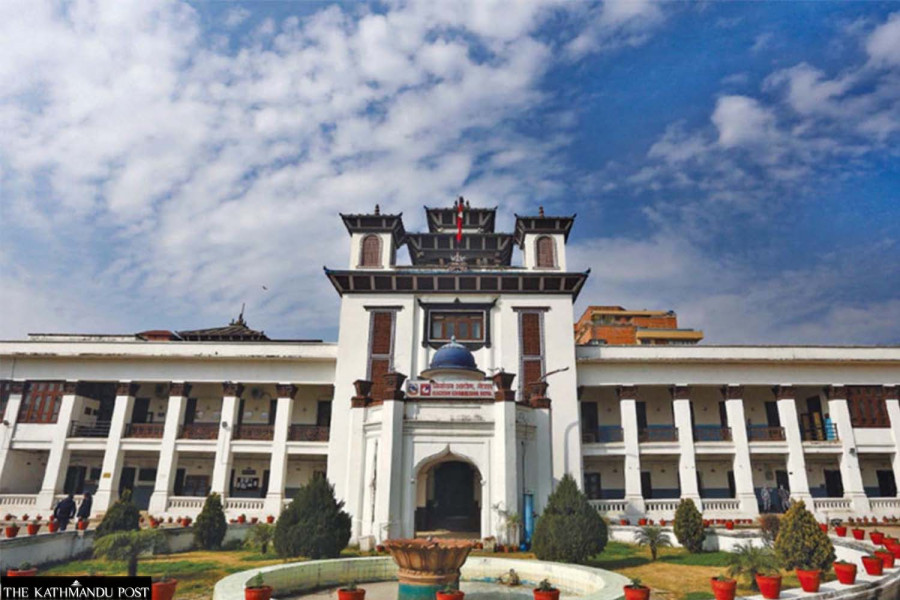Editorial
Don’t be biased
Election Commission is letting the powerful off the hook while raining sticks on the weak.
The Supreme Court’s decision to reinstate the candidacy of Toshima Karki, a contestant for a federal lower house seat from Lalitpur-3 constituency on a Rastriya Swatantra Party ticket, once again highlights the Election Commission’s lack of judgement. The commission had annulled her candidacy, accusing her of holding an ‘office of benefit’ in the Nepal Medical Council. It did so even when constitutional and legal experts were nearly unanimous that her elected membership of the council in no way constituted an office of benefit. In fact, over the past few weeks, while the constitutional electoral body has been quick to crack a whip on independent candidates and those contesting from smaller parties, it has been rather lenient on the candidates and leaders of bigger parties who have flouted the election code of conduct. The commission has also been stringent with social media comments on the poll prospects of top leaders, warning those making such comments of legal action. This was most recently the case with the posts on social media including Facebook and Twitter with the primary theme, “No, Not Again”, which called on voters to reject certain politicians, particularly those who have become prime minister at least once.
The likes of Sher Bahadur Deuba, KP Sharma Oil and Pushpa Kamal Dahal, the prime targets of the campaign, were not amused and, in all likelihood, they had a hand in getting the commission to discourage such comments. This is the same commission that has time and again overlooked provocative, code-busting comments of the same leaders. It has also ignored the illegal campaigning of the big parties, by designating their political rallies and gatherings ‘informal’. Such bias of the chief referee of the upcoming federal and provincial elections is troubling. In a historical sense, the 2022 elections should not be that hard to oversee. The commission had faced far greater hurdles in the past, for instance before the 2008 Constituent Assembly elections. Back then, many armed groups were trying to sabotage the elections and even some mainstream forces were threatening a boycott.
The challenges faced by the current occupants of the Election Commission are comparably easier. Chief among its duties is ensuring a level playing field for all candidates. But the current trend of letting the powerful off the hook while raining sticks on the weak smacks of hypocrisy. Either the body is trying too hard to show that it is doing its job. Or it is being unduly influenced by certain quarters. Neither is done. The fairness of elections is judged not just on the basis of whether there is ballot-stuffing or booth-capturing on election day. Fairness in candidate-approval and campaigning is just as important. It is also a matter of setting the right precedent. If the public trust in the commission goes down, that would be a disastrous result for the health of Nepal’s democracy. Toshima Karki has gotten justice from the apex court. Hopefully, it will also be a lesson on forbearance for commission officials.




 12.12°C Kathmandu
12.12°C Kathmandu













